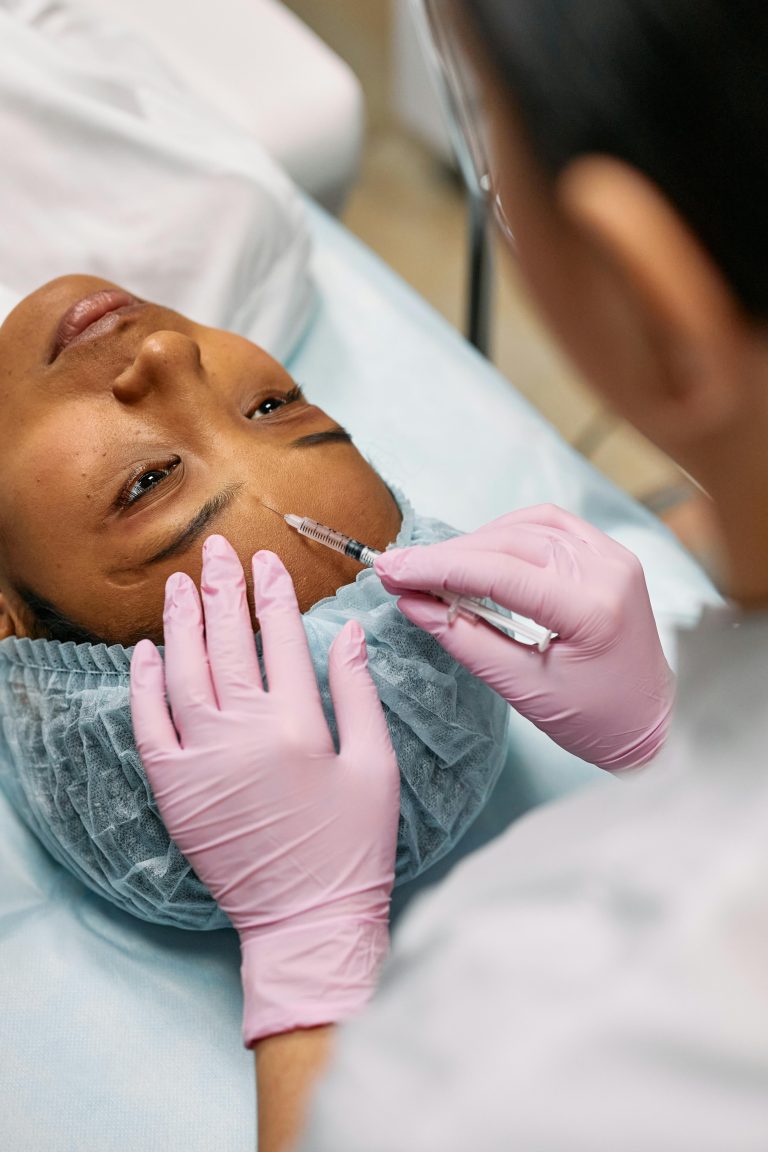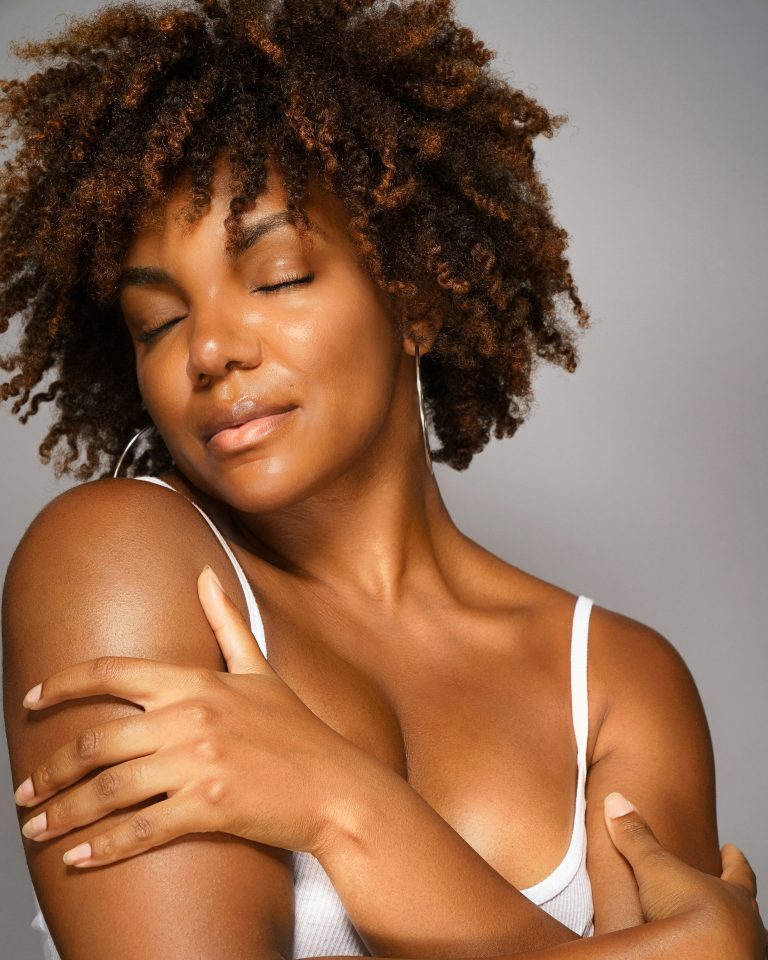Acne doesn’t discriminate – it affects people of all skin tones. But for black women, the battle doesn’t end with breakouts. Acne on black skin often leaves behind post-inflammatory hyperpigmentation (PIH) and stubborn scars, making it even more challenging to manage. That’s why it’s essential to treat acne on black skin with a specialized, consistent skincare routine that addresses both breakouts and discoloration. If you’re struggling to find a routine that works for your melanin-rich skin, don’t worry — we’ve got you covered!
Understanding acne in black skin
Acne occurs when hair follicles become clogged with oil and dead skin cells, leading to whiteheads, blackheads, or pimples. With black skin, acne lesions are more likely to be accompanied by PIH, resulting in dark spots that can persist long after the initial acne has healed. Additionally, there is an increased risk of keloid formation, which are raised scars that extend beyond the original injury site.
Why does acne affect black skin differently?
Black skin is richer in melanin, and while this offers protection from the sun, it also causes us to experience higher levels of hyperpigmentation. During and after the healing process, acne can cause stubborn dark spots, and this typically requires a whole separate routine in itself.
“For many black patients, the dark spots left behind by acne can be more frustrating than the acne itself.”
dR janiene luke of loma linda university health from youtube
How to treat acne on black skin step-by-step
1. Start with gentle cleansing
Cleansing is the foundation of a good skincare routine. You want to select a cleanser that removes dirt, oil, and bacteria without stripping the skin barrier. Paula’s Choice Oil Reducing Cleanser is gently formulated to cleanse makeup and impurities while aloe vera soothes the skin.
2. Tone and balance to treat your skin
A pH-balancing toner that nourishes the skin without stripping it such as Facetheory’s Blemicalm BHA 2% Clarifying Toner is perfect for decongested skin that is prone to breakouts because as 2% salicylic acid works to clear out pores for a smoother, and healthier complexion.
3. Use targeted treatments to heal your acne
Treating acne on black skin requires proven treatments to tackle the breakouts without damaging the skin:
- Retinoids: Arguably the most powerful forces in the skincare game, topical retinoids unclog pores and increase cell turnover, directly treating a host of skin issues. Shani Darden’s Retinol Reform maintains a cult following due to its use of encapsulated retinol for a slower release, resulting in less irritation.
- Benzoyl peroxide: An anti-microbial and anti-bacterial agent that kills acne-causing bacteria, benzoyl peroxide is an O.G in skincare for a reason. However, this ingredient must be used with caution as higher concentrations can have a bleaching effect and dry the skin.
- Azelaic acid: This anti-bacterial and anti-inflammatory alpha-hydroxy-acid (AHA) fights acne, rosacea, and hyperpigmentation simultaneously. It clears those pores OUT. Naturium’s Azelaic Topical Acid 10% is a great addition to your serum arsenal due to its gentle exfoliating abilities on stubborn acne.
PRO TIP!
Persistent acne can be a sign of a deeper issue. While it is wise to target acne from multiple angles, it is important to know when to seek professional help. Regular blood tests and general check ups can be helpful in diagnosing underlying conditions that may be causing reoccurring acne.
4. Hydrate to protect your skin
Black skin requires hydration, irrespective of skin issues. This is crucial to preserve the skin barrier. A common misconception is that acne or oilier skin does not require a moisturizer, but this cannot be further from the truth. Kiehl’s Ultra Facial Moisturizer nourishes, softens, and moisturizes the skin for all day hydration. Hydrated skin not only feels good, but looks better, too.
5. Protect with SPF
Let’s bust a myth: Black skin requires sunscreen, too! Acne or not, sunscreen is essential in protecting your skin from harmful UV rays. Now, add powerful anti-acne treatments into the mix such as retinoids or AHA’s, your skins susceptibility to sun damage increases. Supergoop’s Unseen Sunscreen is a weightless gel that absorbs effortlessly into the skin, and even doubles as a makeup primer.
6. The anti-acne lifestyle
To treat acne on black skin requires more than a skincare routine, you’ll have to make lifestyle changes, too. Reducing your stress levels, although easier said than done, is important because stress releases cortisol, and cortisol can cause hormonal acne. Eliminating sugar and dairy may also help as many black women find that this is linked to a stream of hormonal issues. Replacing this with antioxidant-rich foods such as berries and leafy greens will not only have a tremendous effect on your skin, but on your mental health and wellbeing, too.
At the end of the day…
It’s just skin. As frustrating as acne can be, it does not define us, or our beauty. Realistically, the state of our skin will fluctuate throughout our entire lives. With this in mind, we shouldn’t place too much importance on our skin issues, but rather on our health and happiness.
If we play our part when it comes to looking after ourselves, then we naturally focus on what we can control. Plus, results are not achieved overnight. They are achieved through patience, dedication, and consistency. So, be kind to yourself – breakouts and all.



